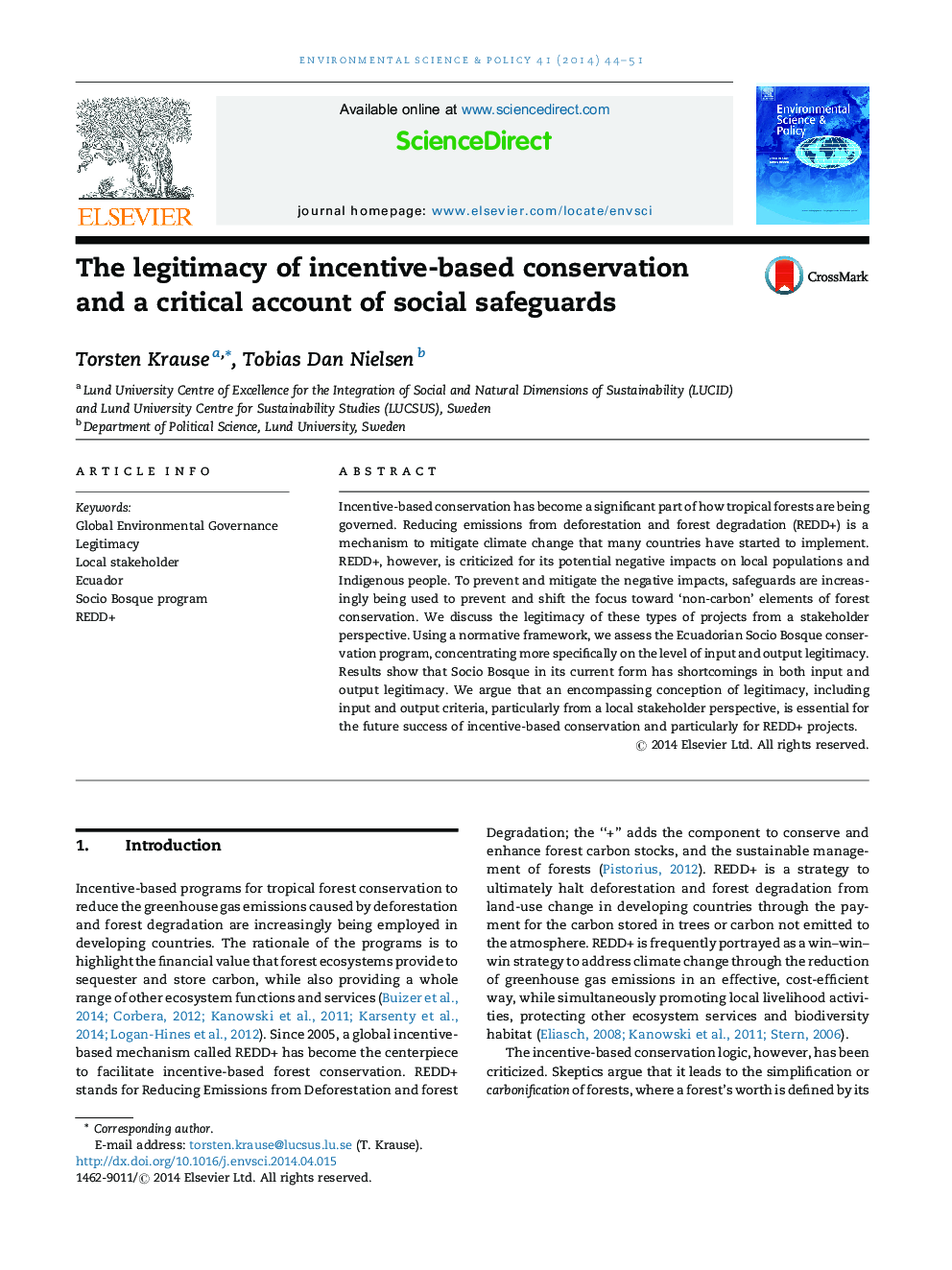| Article ID | Journal | Published Year | Pages | File Type |
|---|---|---|---|---|
| 1053574 | Environmental Science & Policy | 2014 | 8 Pages |
•Legitimacy is a condition for the success of incentive based conservation and REDD+ programs, beyond pure carbon effectiveness.•Local stakeholders, i.e., Indigenous groups, must perceive these programs to be legitimate.•Social safeguards are not neutral but part of a wider discourse on how REDD+ is designed and legitimized.•Input and output criteria of legitimacy can provide a useful way to determine the legitimacy of conservation incentive programs.
Incentive-based conservation has become a significant part of how tropical forests are being governed. Reducing emissions from deforestation and forest degradation (REDD+) is a mechanism to mitigate climate change that many countries have started to implement. REDD+, however, is criticized for its potential negative impacts on local populations and Indigenous people. To prevent and mitigate the negative impacts, safeguards are increasingly being used to prevent and shift the focus toward ‘non-carbon’ elements of forest conservation. We discuss the legitimacy of these types of projects from a stakeholder perspective. Using a normative framework, we assess the Ecuadorian Socio Bosque conservation program, concentrating more specifically on the level of input and output legitimacy. Results show that Socio Bosque in its current form has shortcomings in both input and output legitimacy. We argue that an encompassing conception of legitimacy, including input and output criteria, particularly from a local stakeholder perspective, is essential for the future success of incentive-based conservation and particularly for REDD+ projects.
